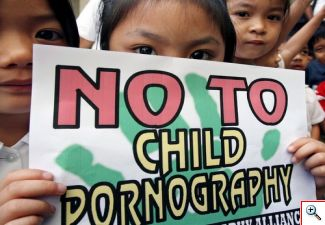 The Department of Social Welfare and Development (DSWD), the government’s lead agency in social protection, joins the observance of the National Awareness Week for the Prevention of Child Sexual Abuse and Exploitation.
The Department of Social Welfare and Development (DSWD), the government’s lead agency in social protection, joins the observance of the National Awareness Week for the Prevention of Child Sexual Abuse and Exploitation.
Observed from the 9th to 17th of February, the event carries the theme “Child Pornography Wakasan: Sa Tamang Paggamit ng Internet, Bata ay Gabayan.”
This year’s observance, as the theme suggests, focuses on child pornography and similar crimes committed against children on the internet.
Republic Act 9775 or Anti-Child Pornography Act of 2009 defines child pornography as “any representation, whether visual, audio, or written combination thereof, by electronic, mechanical, digital, optical, magnetic or any other means, of child engaged or involved in real or simulated explicit sexual activities.
Aside from the Anti-Child Pornography Act of 2009, Philippine law also constitutes Republic Act No. 7610 or The Special Protection for a Child against Abuse, Exploitation, and Discrimination Act to safeguard the rights of the Filipino children against any form of maltreatment.
Under these laws, child abuse, exploitation, discrimination, neglect, and abandonment shall be reported to the nearest barangay council, law enforcement agency such as the PNP or NBI and health institutions within 48 hours from the time of discovery.
For 2011, DSWD officials said there were 263 abused children in the Cordillera Administrative Region (CAR). This is according to the consolidated reports of the planning unit of the DSWD, local government units, and other social welfare agencies. This number reflects only those who have reported cases of abuse and discrimination.
DSWD Cordillera Protective Services Unit (PSU) Head and Assistant Regional Director for Administration Janet P. Armas identified various interventions that the Department offers to address child abuse.
These include community-based welfare and development programs where technical assistance and resource augmentation are provided for vulnerable sectors such as children in need of special protection and youth with special needs in the community level.
Also part of these services is the Center and Residential Care which facilitates in the rendering of residential care, temporary shelter, and center-based services such psychosocial treatments and case management. The Regional Haven (Center for Women and Girls),the Reception and Study Center for Children (RSCC), and the Regional Rehabilitation Center for the Youth (RRCY) managed by the Department, are just some of the centers and institutions that provide this kind of service to victims.
Meanwhile, the Alternative Parental Care Program aims to monitor and provide technical and financial assistance on adoption and foster care of abandoned or neglected children.
DSWD Social Welfare Officer Manuela Ortiz and Anti-Child Abuse Network (ACAN) member said that children who have experienced abuse have difficulty to overcome the maltreatment inflicted on them. According to Ortiz, the most common abuse experienced by children in the Cordillera are physical and sexual abuse.
Aside from the rehabilitation services, the Department also conducts measures to prevent the worsening of the problem. Assistant Regional Director Armas said that the DSWD conducts parent effectiveness sessions and supplementary feeding. Moreover, Day Care Centers are used to strengthen the values of the children as they begin their formal education.
The Baguio City Silungan Center, Social Development Center, Child Abuse Prevention and Intervention Network (CAPIN) of La Trinidad, Benguet, Child and Family Service Philippines Incorporated (CFSPI), Save our School Children, Safe Harbour International Philippines (SHIP), and are among the organizations in the region that support child welfare and development. # Nerizza Faye G. Villanueva/DSWD-CAR Social Marketing Unit




